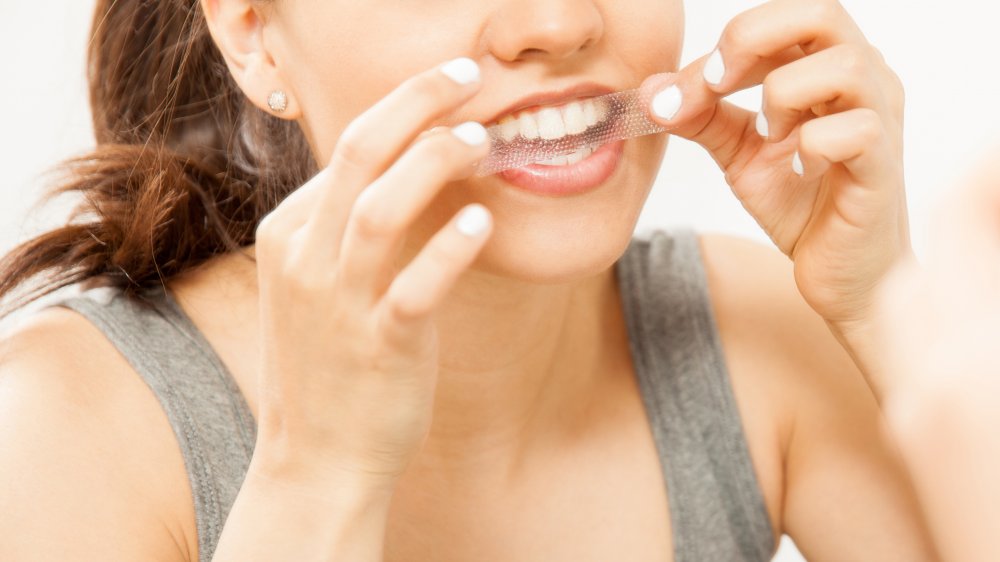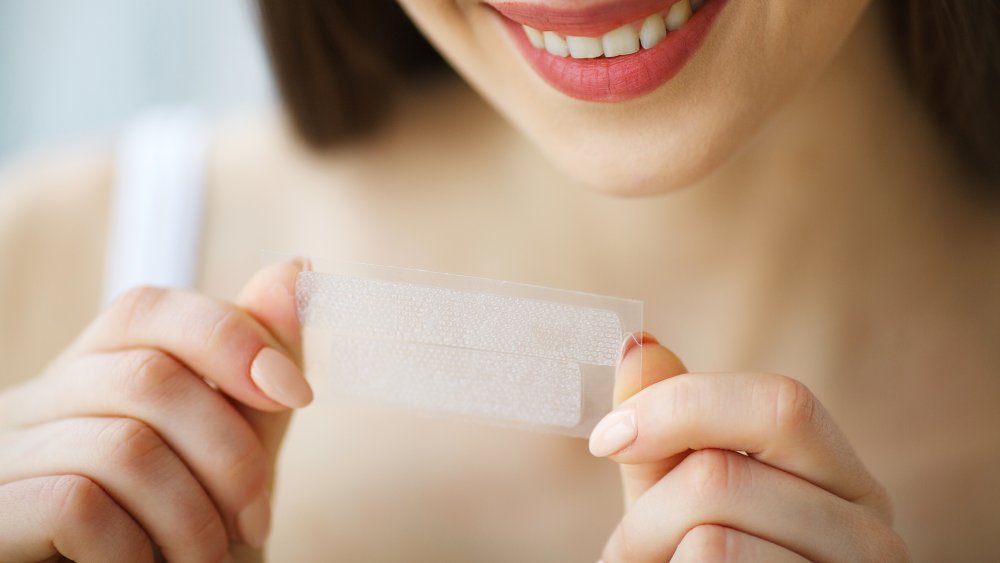The Real Reason Why Crest Whitestrips Are Banned In The UK
We may receive a commission on purchases made from links.
If Amazon product reviews are anything to go by, Crest Whitestrips seem to be a "love 'em or hate 'em" kind of thing. Folks that swear by the product say it gets their teeth as white as they would have gotten them if they had been to the dentist. Those that aren't fans say that the strips either don't work, or worse, that they've left the pearly whites of some users feeling more sensitive.
While Crest Whitestrips are a thing in the US and its users consider it to be a good alternative to getting teeth professionally cleaned and whitened at the dentist's office, the same can't be said in the UK, where the same brand of whitening strips is banned — it all has to do with whatever is in the Whitestrips and how much of it there is (via Electric Teeth).
Tooth whitening treatments generally use one of two types of chemicals to make teeth look better: hydrogen peroxide and carbamide peroxide. Both get the job done by getting past our tooth enamel, which is harder but is also porous, to get to our teeth's inner dentin layer — which determines the color of our teeth. Once the chemical reaches your dentin, it breaks down the stains — of the two chemicals, hydrogen peroxide is more aggressive than carbamide peroxide at doing this (via Metro).
Crest Whitestrips are stronger than British OTC whitening strips
In the UK, over-the-counter (OTC) whitening strips can only have as much as 0.1 percent of hydrogen peroxide, while Crest Whitestrips have more — a lot more. In the US, the American Dental Association says whitening strips can have as much as 10 percent hydrogen peroxide, which is what Crest Whitestrips have. The maximum strength of hydrogen peroxide allowed in whitening strips in the UK is 6 percent, and these are only available with a prescription from the dentist (via Electric Teeth).
British dentists are wary of the potential damage hydrogen peroxide could cause in your mouth. If the chemical is used for too long or if the concentration is too high, hydrogen peroxide could burn the soft tissues in your mouth like your gums, tongue, and cheeks. The chemical could aggravate any current problems your teeth might have like cavities, and it could cause inflammations that could trigger infections. But even if you use hydrogen peroxide correctly, it can still cause sensitivity (via Electric Teeth). Since teeth whitening treatments work best after your teeth have been professionally cleaned anyway, you may be better off going to the dentist before you use any whitening strips to get a professional opinion, simply because your teeth might not tolerate hydrogen peroxide as well as you hope they will.

